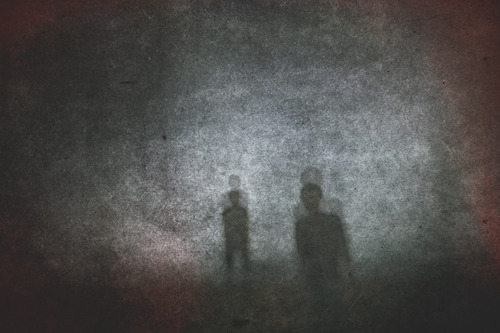"A man should love peace, but if he cannot fight with all his heart then he will not have peace."
I've recently taken it upon myself to read the Majestic
Warlord Chronicles, or, as they are also known,
The Arthur Books.
It just so happened that I got the first book in the mail by a presumed admirer... because who else would send me this book?
So, before I begin this review, a big thank you to whoever it was that had sent it to me because these books are fucking fantastic!
Having said that, I must also point out that, have I not been interested in this subject and the
Arthurian Myth in general, I would have probably stopped reading, for the first chapter consists of what I thought to be a rather curious case of world-building. Curious because (spoiler alert) almost every character that is painstakingly described and introduced through sheer "telling" gets screwed over badly (murdered).
The build-up still somehow works, however, since it cements the story of
Derfel Cadarn, who is the protagonist and hero of the story and who in one fell swoop looses everything. How's that for a poor orphan with bad luck.
I should say that the books can be described pretty simply.
Honor. Loyalty. Friendship. Love. War.
These are the basic themes that run through the three novels and which are told with amazing skill and finesse. I wasn't bored in the least when reading these books, ever.
Yet there's a thing about the first book which the other three lack, and which I found pulled you in quite a bit (but by the second you're spellbound anyway, so I wouldn't say the other two lacked anything). Simply put, the first one is slower and builds up every chapter much more gradually. It then reaches the chapter's climax and suddenly you wish to read even more.
The historical aspects are added to and are made real by the names running rampant throughout the tale. Some of which are quite fun to pronounce.
Gorfydyyd!
I will not get much into the story, other that the fact that is is great.
There's a lot of surprises and the prevailing sense of confusion, when you don't know if what
Merlin and the druids can do is real, or if their magic is just circumstance, sheer luck and worldly wisdom. The religious aspects of the book are thrust into the forefront from the start. Although in the beginning it will seem as though everyone mostly just "spits to avert evil" (there's a lot of spitting), or pisses to avert evil spirits, but later, when Christianity comes into play, the strife between the two religions, and the differences, become quite interesting. Not to mention that the druids sometimes (especially at the end of the series and the end of each book) seem to truly have some magical powers that are baffling, but can mostly be explained by superstition and happen-stance, which makes it all the better and all the more confusing for the reader. But confusion in this case is good.
"They saw a British warlord in splendour, and I saw two dead Saxons."
The first book is largely a "quest" book, since everyone is on a quest for something, Arthur, Derfel, Merlin, Morgan and even
Nimue. The second book is almost all political intrigue with smaller battles aka skirmishes, while the third is where the larger battles take place, as the Saxon threat truly becomes real.
I never tired of the descriptions of shield-wall battles. It's interesting, to say the least, on how combat looked like back then, and how a group of 200 veterans in a shield wall was considered an army and a considerable threat. Did you notice I said looked like? The imagery is quite vivid and visceral indeed.
There's a lot more I could say about these books, but I will say nothing else but the fact that I wish there had been more of them.
Now I'm going to have to read the Warrior Chronicles... Damn you,
Cornwell!
10/10














![[Review] Necronomicon: Commemorative Edition by H.P. Lovecraft](https://blogger.googleusercontent.com/img/b/R29vZ2xl/AVvXsEhgdF0517sw0h19hb0B9XxtWwvSqFvLnO1PvQqhErN0ITA3ZDwJ-sU_Q_49ovDljxRzS45QII9fT2-lczD5IZCeahoQJNO1zImRj_qyP4Q5L7Pd8lSuAPmPO7am2eKtFyiDBRj7vgW1xdNu/s72-c/lovecraft_fatherhorror.jpg)

![[Review] Leviathan Wakes by James S.A. Corey](https://blogger.googleusercontent.com/img/b/R29vZ2xl/AVvXsEiiWZYd4kwPeh2TQrfksmjh9wFc_HYxRHvQF4zOSHyVJo5hdI0acqWpY4B9mI8VbeqCPVYjCrMND4IbtieaOz3b0fWWReqreARHfbVizfjAY7VCyemDnk6MdPQBFCk4tUVYy_btDZnVLb7U/s72-c/Leviathan_Wakes_(first_edition).jpg)
![[Review] The Liar's Key by Mark Lawrence](https://blogger.googleusercontent.com/img/b/R29vZ2xl/AVvXsEhivHFG5I3v7Obk3paI_eqxncf3T0DID4mu6cn1l8WI0qRXvVN5mCkgyV9RSZh_SMjZfgvRWsr7c2q2BKedk3BNGjEY1M2flT-Cas6E9MGT2DTxcvWH-KS7oaCFtwTpQqqdIy1eFCc-U5Bj/s72-c/liars-key-uk-cover.jpg)


![[Review] King of Thorns by Mark Lawrence](https://blogger.googleusercontent.com/img/b/R29vZ2xl/AVvXsEjmke_0FrkTWWvRqBK_i-OqL50YQ0otLaczQ8TA2_-7IIZITbRDbi5gyXWmbAJPYMg5bydPGhxnUmuUGIgErCN8Vy8R87R5DoQMOy3d7zc_hUDn9yZoQnAlpNutMJLN47S8CtqRiIA0jSst/s72-c/kingofthorns_cover.jpg)


0 komentarji: